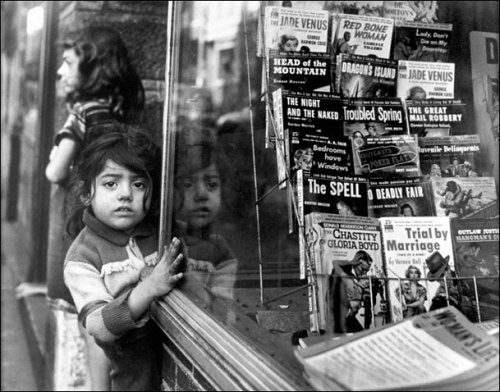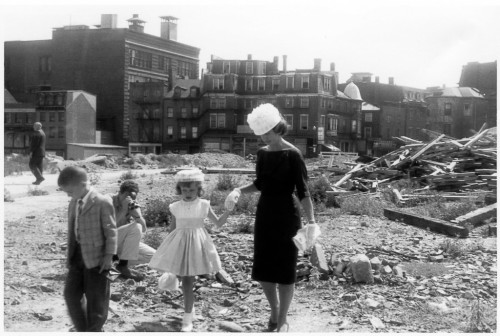Imagine this: an entire working class neighborhood in a bustling city is completely demolished over
Imagine this: an entire working class neighborhood in a bustling city is completely demolished over the course of three decades to make way for modern high-rise condominiums and office space. That’s exactly what happened to the West End neighborhood of Boston in 1958. Since the 1920’s, the area had been home to thousands of Irish, Italian, and Jewish families, many of whom were working-class, second generation immigrants. Many tried to retain their unique cultural and religious traditions, and the neighborhood was a mixture of families living side-by-side. Street culture ruled: kids played, women congregated and gossiped after church, men smoked on street corners. While the buildings were often dilapidated, West Enders took great pride in making sure their apartments were clean and comfortable. Most importantly, rent was affordable and the location in central Boston would have been unattainable for working class families anywhere else. By the 1950s, cities across America were undergoing urban renewal projects in efforts to “modernize” and draw affluent, white suburbanites back into the city. The narrow streets, alleys, and dense blocks of tenements didn’t exactly meld with the midcentury idea of a “modern city.” The West End was labeled a slum and scheduled for demolition. Landlords were instructed to stop repairing their buildings, and people who had called the neighborhood home for decades were pushed out to the outer areas of Boston. The entire neighborhood was razed over the course of 30 years and rebuilt from the ground up. While affordable housing units in new condos were promised, those who took the initiative to move back found the old sense of community gone. By the 1980s, it was decided that the project had largely been a failure. You can learn more about the fate of the West End by visiting the West End Museum in Boston, or checking out the book Urban Villagers by Herbert Gans. -- source link
#boston#history#american history#20th century



